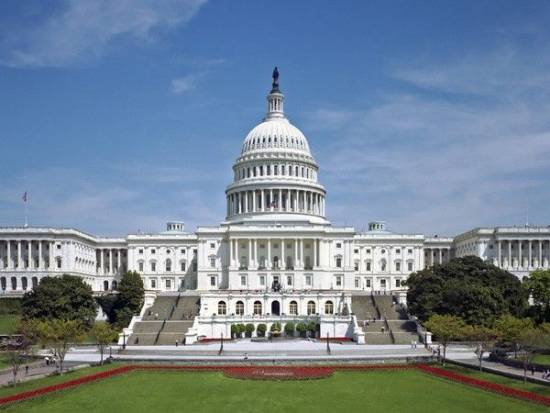Weakening China's pretext for Uyghur crackdown, US drops ETIM from terrorist outfit list
Washington [US], (ANI): The US government has removed the East Turkestan Islamic Movement (ETIM) from its list of terrorist organisations after nearly two decades that has led to the weakening of China's anti-terror pretext for a draconian crackdown on Uyghurs in its Xinjiang Uyghur Autonomous Region.
Secretary of State Mike Pompeo announced that the group had been removed from the list of Foreign Terrorist Organizations in accordance with the Immigration and Nationality Act, according to an order issued on October 20 made public on Thursday.
"I hereby revoke the designation of the Eastern Turkestan Islamic Movement, also known as ETIM, as a 'terrorist organization,'" the order reads, as quoted by Radio Free Asia.
According to Radio Free Asia, China refers to Uyghur activists in exile as members of ETIM as a measure to disregard the claims of ongoing rights abuses in the region.
The Chinese Communist Party also uses the group to "prop up its narrative" that Uyghurs lead happy lives under Beijing's rule, while ETIM "promotes separatism and remotely commands attacks within China from abroad."
Nury Turkel, a commissioner on the US Commission on International Religious Freedom, an independent US federal government body, said that the revocation was "long overdue," as the ETIM designation was "a strategic blunder" by the State Department.
"It is fair to say that China would not have been able to use the 'counter-terrorism' narrative -- even to this day -- to justify its genocidal policies against the Uyghurs and other Turkic peoples if it was not for international communities' mistake to allow Beijing to label ETIM and other Uyghur organizations as terrorist groups," he said.
"We urge the U.N. and other nations to follow the U.S. lead and reject Beijing's counter-terrorism claims to justify the atrocities committed against the Uyghur people," he added.
Dolkun Isa, president of the Munich-based World Uyghur Congress exile group, called the revocation "of historic significance."
"China took full advantage of the U.S. designation of ETIM in 2002 and launched a wholesale attack on the entire Uyghur population, conflating their legitimate and peaceful demands as terrorism," Radio Free Asia quoted him.
Isa added that currently, China justifies its mass detention of 1 to 3 million Uyghurs in concentration camps as a counter-terror measure.
"Today's revocation removes any Chinese justification that it is fighting terrorism in East Turkestan. Today's revocation also proves that the Uyghur cause is peaceful and has nothing to do with terrorism as the Chinese government claims," he added.
Xinjiang region is home to around 10 million Uyghurs. The Turkic Muslim group, which makes up around 45 per cent of Xinjiang's population, has long accused China's authorities of cultural, religious and economic discrimination.
About 7 per cent of the Muslim population in Xinjiang has been incarcerated in an expanding network of "political re-education" camps, according to the US officials and UN experts.
Classified documents known as the China Cables, accessed last year by the International Consortium of Investigative Journalists, threw light on how the Chinese government uses technology to control Uyghur Muslims worldwide.
However, China regularly denies such mistreatment and says the camps provide vocational training. People in the internment camps have said they are subjected to forced political indoctrination, torture, beatings, and denial of food and medicine, besides being prohibited from practising their religion or speaking their language. (ANI)
Disclaimer: The views expressed in the article above are those of the authors' and do not necessarily represent or reflect the views of this publishing house. Unless otherwise noted, the author is writing in his/her personal capacity. They are not intended and should not be thought to represent official ideas, attitudes, or policies of any agency or institution.


